Guixia Village Manor Gold Label Red Label Green Label Difference Ethiopian Coffee Bean Variety Classification System Introduction
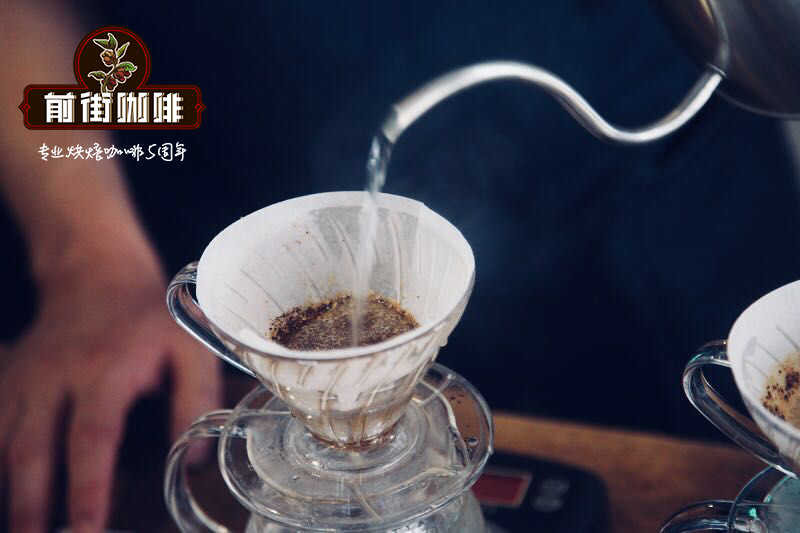
Of course, good coffee is grown in places with good conditions, and those of top quality really occupy the right time, location and people, otherwise it would not be so expensive. What can be said are the Emerald Manor in Panama and Clifton Manor in Jamaica, which are all very famous top coffee farms in the world.
Usually drink only the jade manor of Panama when drinking rose summer. The rose summer of Ethiopia's rose summer village is not a special understanding, so the editor will share with you today the story about the rose summer of the rose summer village.

Rose summer is actually a variety.
The species of Geisha was first discovered in the rose forests of Ethiopia in 1931 and later sent to the Coffee Institute in Kenya. Introduced to Uganda and Tanzania in 1936 and introduced to Costa Rica in 1953.
Not many people have paid attention to Rose Summer all the time. Until one day, Don Pachi was originally brought to Costa Rica from GESHA, a small town in southwestern Ethiopia, and then Rosa entered Panama along the southern route. Esmeralda Esmerada Manor in Panama separated it from other varieties and won the national coffee competition, so Rosa officially entered everyone's attention.
However, in the past two years, Guixia Village has a strong flavor, not only ended with an astonishingly high price in two consecutive years of manor independent bidding, but also was chosen by a number of top players such as WBC, bringing the coffee kingdom of Ethiopia back to its peak and once again refreshing people's recognition of Ethiopian coffee.
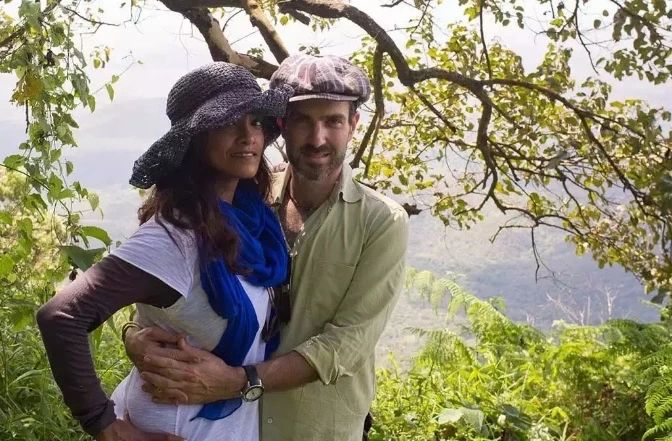
The Origin of the Manor in Guoxia Village
In 2007, documentary director Adam Overton and photographer wife Rachel Samuel came into contact with the Gera Coffee Forest in the Banchi Maji region while shooting a documentary about Ethiopian coffee for the Ethiopian government, and in the process they came up with the idea of building their own coffee estate and brand.
In 2009, they were lucky enough to meet the famous mule owner and BOP judge Willem Boot, and Willem Boot's idea provided an opportunity for the Overton couple to return to Ethiopia to find the birthplace of Rose Summer.
Finally they came to Banchi Magi, an area in southwestern Ethiopia near South Sudan, where many places are known as the village of Gesha and where primitive roses are most likely to be found.
Adam followed WillemBoot on an adventure in the forest around the manor. In a jungle magically surrounded by a thick forest, he found a variety of wild tree species, and what surprised them most was to find the wild rose summer.
Later they learned that this was the place where the rose species were first found in the Gori Gesha forest. So they collected seeds from native rose trees, screened them, and planted them in Rosa Village. They decided to build the estate here and name it Gesha Village Coffee Estate, a 475-hectare coffee farm about 12 miles from the Gori Gesha Forest.
Unlike most Ethiopian farms, Guixia Village is not a small farm, but a 500-hectare farm with its own washing plant and laboratory, and the whole farm only grows Rosa varieties. It is not generally impossible to determine specific varieties of Ethiopian native species.
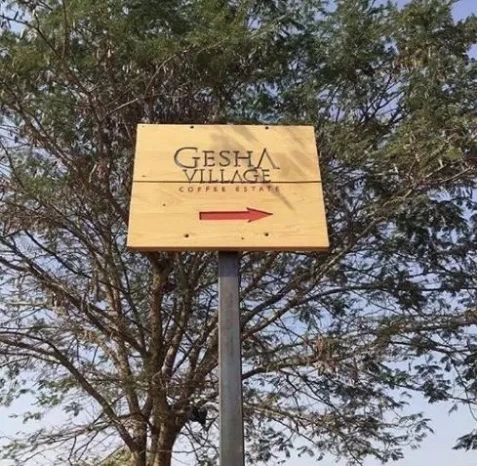
Coffee varieties in Guoxia Village
There are three varieties in Rosa Village, named after the expedition when the coffee was discovered: Gesha1931 and Gori Gesha and Illubabor provided by the Ethiopian Coffee Research Center.
Gesha1931 is confirmed by observing the shape of the plant, the shape and size of the beans, and its cup test that it is the closest female parent to the Panamanian summer. On the other hand, the Gori Gesha heirloom was collected by the owner of Rosa Village through his own expedition in 2011 from the wild coffee forest of Gori Rosa, 20 kilometers from the village farm, and no duplicate samples have been found elsewhere.
From the beginning, the owner of Ruoxia Village went to the forest of Rosa Gori to collect wild Rosa seeds for planting and cultivation. After 7 years of efforts, he continued to extend to the surrounding area to reclaim remote wilderness forests. The coffee farm of Rosa Village, which covers an area of 471 hectares, was born in this woodland.
In fact, unlike most Ethiopian farms, Guixia Village is not a small farm, but a 500-hectare farm with its own washing plant and laboratory, and the whole farm only grows Rosa varieties. It is not generally impossible to determine specific varieties of Ethiopian native species.
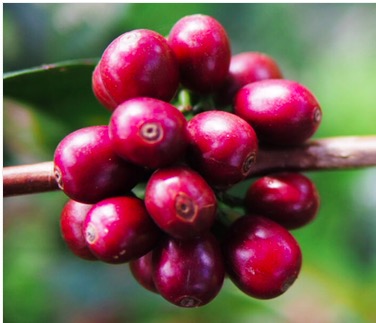
Quality control and grade of coffee beans in Ruoxia Village
Ruoxia Village is divided into eight small farms, which they call neighborhoods.
In Rosa Village, every step of planting and processing strives for uncompromising quality. At the coffee lab in Addis Ababa, as well as the official SCA standards, each batch is carefully selected and strictly graded through a rigorous cup testing process to ensure that buyers are provided with the best quality coffee beans. Finally, from extremely high-end and delicious treasures to exquisite mixed chakas, one is divided into four levels and is available to the world coffee market. What they do is that each batch, a label, can be traced back to the details of the bean.
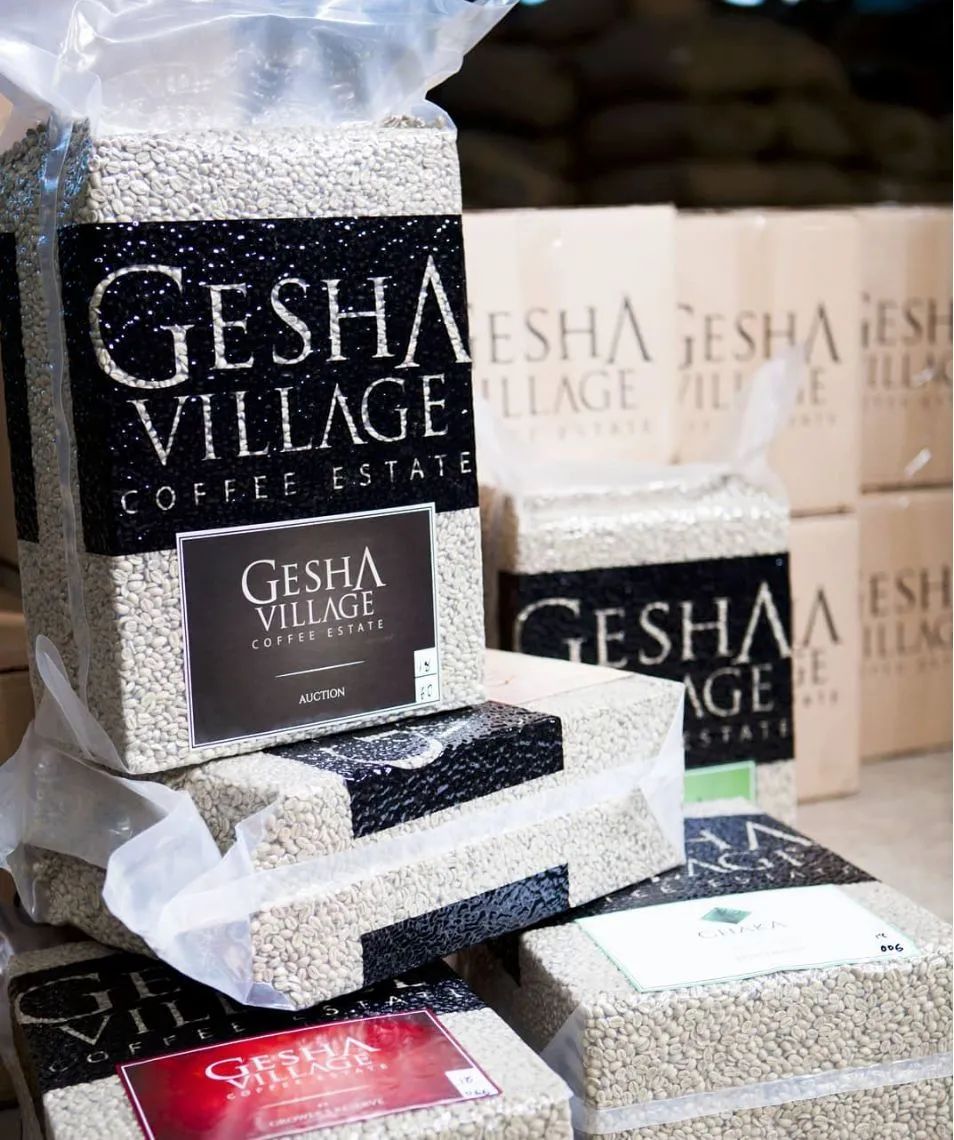
There is a strict grading system in Guoxia Village, which is competitive bidding, gold bid, red bid, green bid and Chaka batch. However, at present, the editor has a deep understanding of the batches of Gold Standard, Red Standard and Chaka, so the editor will introduce the cup test, flavor and cooking of these three batches in detail later.
[bidding lot]
Accounting for only 3.7% of the annual output of Rose Xia Village, the top batch of the carefully selected manor can only be obtained through the global bidding of 2018 Rose Xia Village Coffee Manor. The cup test score of the 2018 bidding batch is 88.15-92.67 points, which is divided into champion selection (Champion's Reserve) and manor selection (Farm Reserve).
For example, Gesha Village 2018 Auction Lot RSV.6 belongs to the bidding batch.
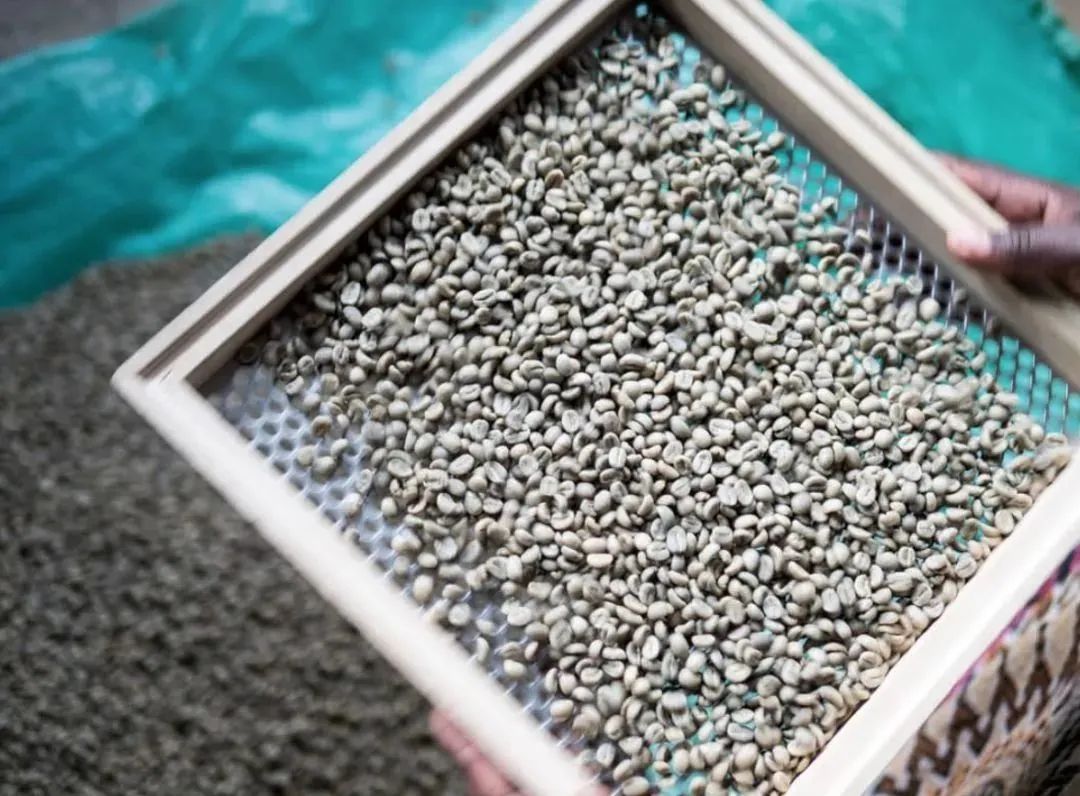
"2018 Rose Summer Village bidding lot"
Since the bidding in Ruoxia Village began in 2017, due to the phenomenon of competitive and non-competitive bidding batches with the same batch number on the market, Ruoxia Village has made great efforts to reform this year. 2018 of the bidding batches are all independent batches. The selection of bidding batches took nearly 3 months, and 31 bidding batches were finally finalized after several rounds of repeated cup testing.
Multiple rounds of strict selection of bidding batches
The first round of screening began at the end of January, when the landowners Adam and Rachel, together with their quality control team and Willem Boot consulting team as far away as the United States, began cup testing in Ethiopia and rest for more than 6 weeks. in the cup test, in order to prevent different cup test results due to different ordering, each batch of beans must go through at least two rounds of cup tests in different order to ensure accurate results.
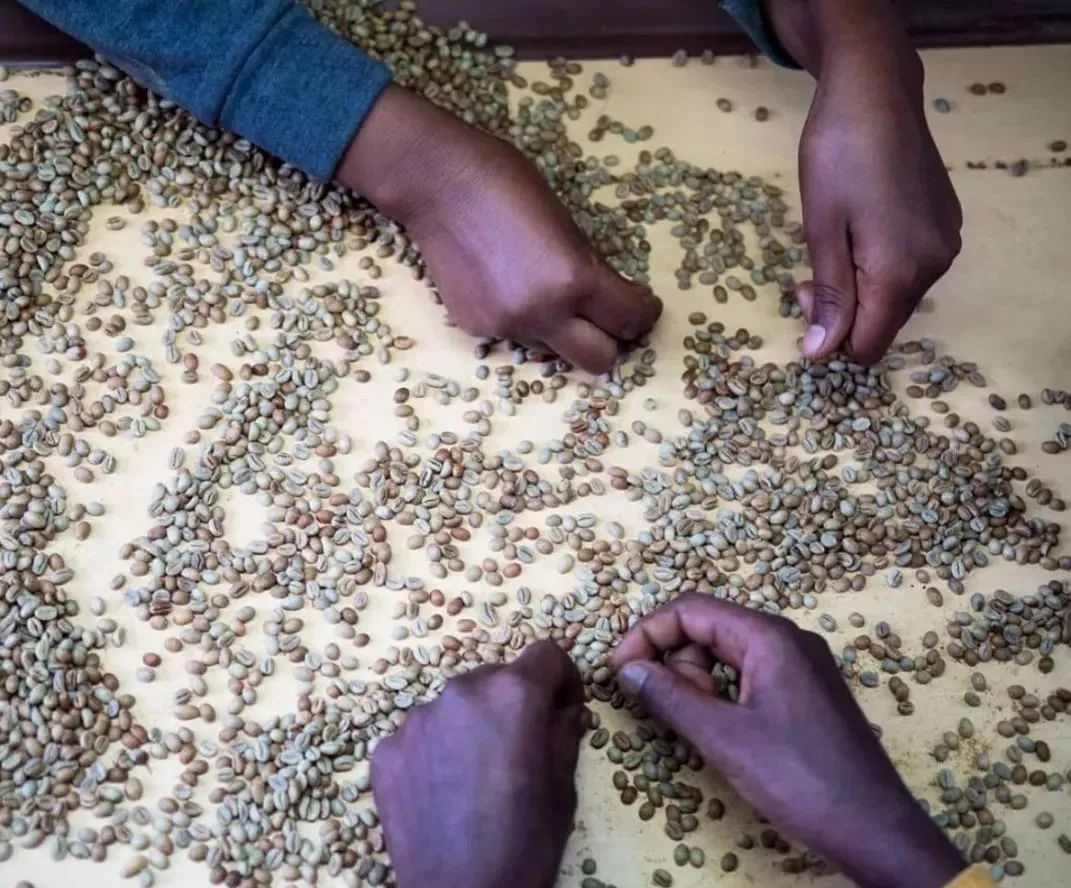
> 2018 Rose Xia Village bidding lot to join the number of items size index
In the end, the owner and the team finally selected the best 31 batches from 117 batches, but in order to further improve the flavor of the 31 batches, the team conducted a new series of tests. By comparing different numbers of eyes, they found that beans with larger eyes performed better in cup tests. As a result, they decided that in the bidding batch, the mesh number of Rosa 1931 was 17 or more, and that of Gori Rosa and Illubabor was 16 and more. But because Ethiopia's existing mesh screening equipment can only screen beans with 14 or more mesh, landowner Adam also bought back dozens of coffee laboratories from the United States, and hired a large number of workers to manually screen the beans in the bidding batches.
> after round after round of cup tests, the bidding batches of Ruoxia Village in 2018 were finally determined, which were divided into champion selection (7 batches, only 90kg in each batch) and manor selection (24 batches, only 120kg in each batch) totaling 31 batches, including 26 sun drying batches, 4 water washing batches and 1 honey treatment batch.
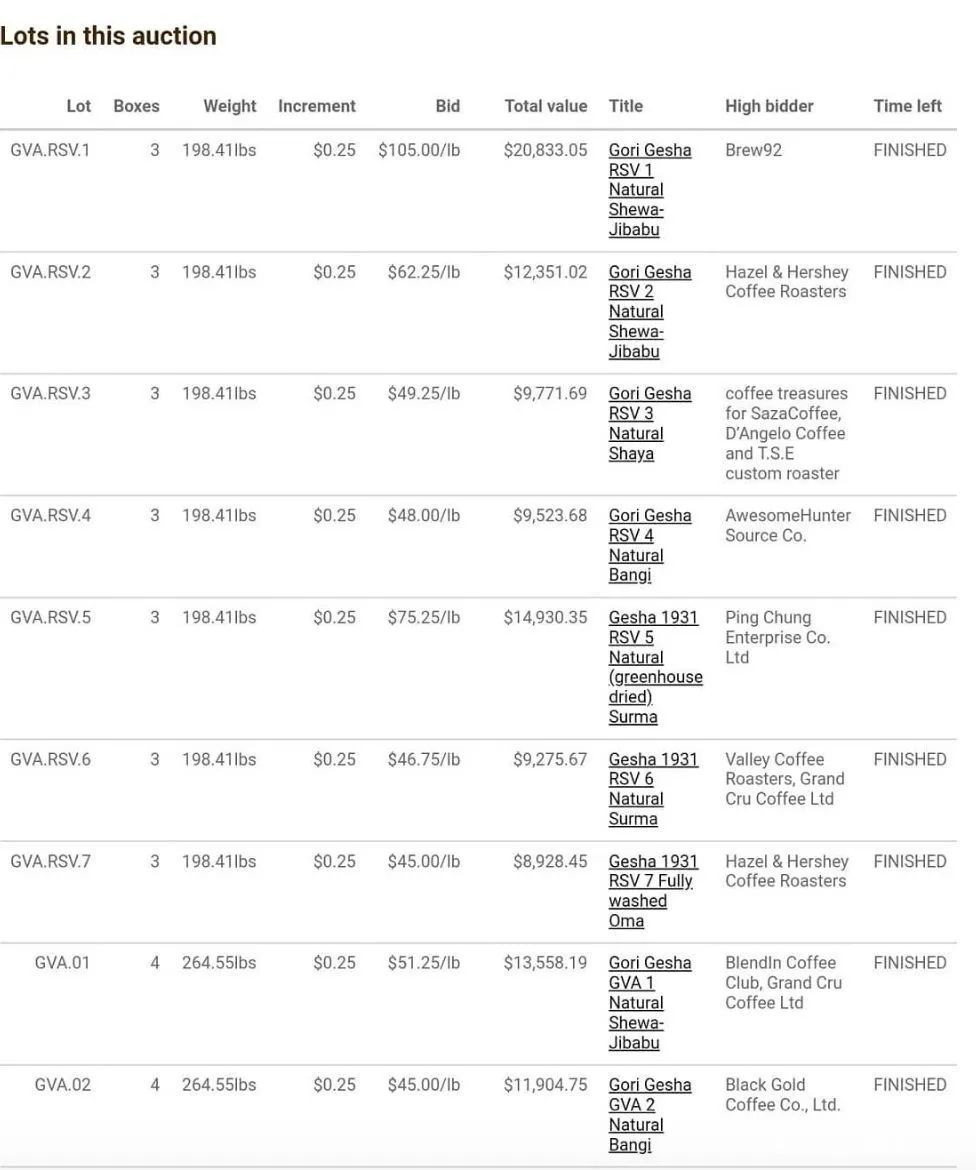
Proportion of different parcels in bidding batches
In the bidding batch, the proportion of three coffee varieties in Rosa Village is 69.1% for Rosa 1931, 27.5% for Gori and 3.4% for Illubabor.
"2019 Rose Summer Village bidding lot"
The 2019 Rose Summer Village global auction kicked off in June. According to Willem Boot, the estate auction manager of Rose Xia Village, the 2019 Rose Xia Village quality control team evaluated more than 130 lots and selected high-quality lots with more than 88 points for auction. they are: champion selection batch (Champion Reserve), with 7 batches with the highest cup test score; Manor selection batch (Farm Reserve) has 13 outstanding lots. Innovative selection batch (Innovators Reserve) has only 6 experimental batches of special treatment.
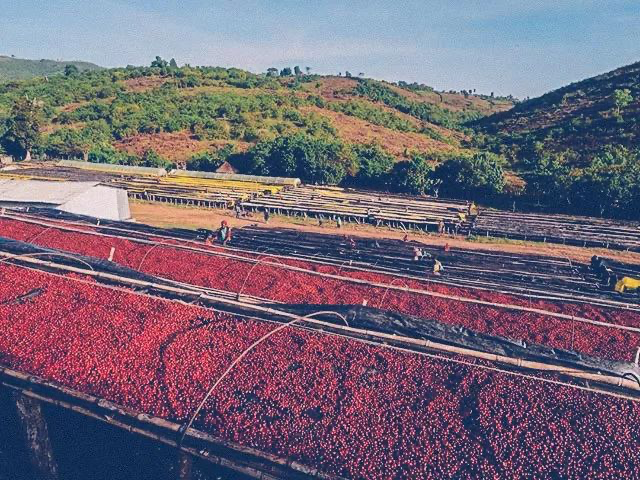
Champion selection batches (7 / 14 batches)
The champion selection batch brings together the best batches of the 2019 production season in Rose Xia Village. The winner scored more than 90 in each batch and showed extraordinary characteristics in the cup test, from amazing jasmine aromas to charming complex fruit flavors such as strawberries, peaches and papayas.
Manor selection batches (13 / 13 batches)
The manor selection batch is a high-end product with excellent manor flavor, with cup test scores of 88 or more. Rich fruit flavor and expressive aroma are the characteristics of this batch, which will bring you an unforgettable flavor experience.
Innovative selection batches (6 / 6 batches)
Innovative selection batches adopt iconic special treatment methods and innovative technologies in fermentation and drying, which not only introduces extremely complex flavors for coffee, but also provides coffee lovers with a profound sensory experience.
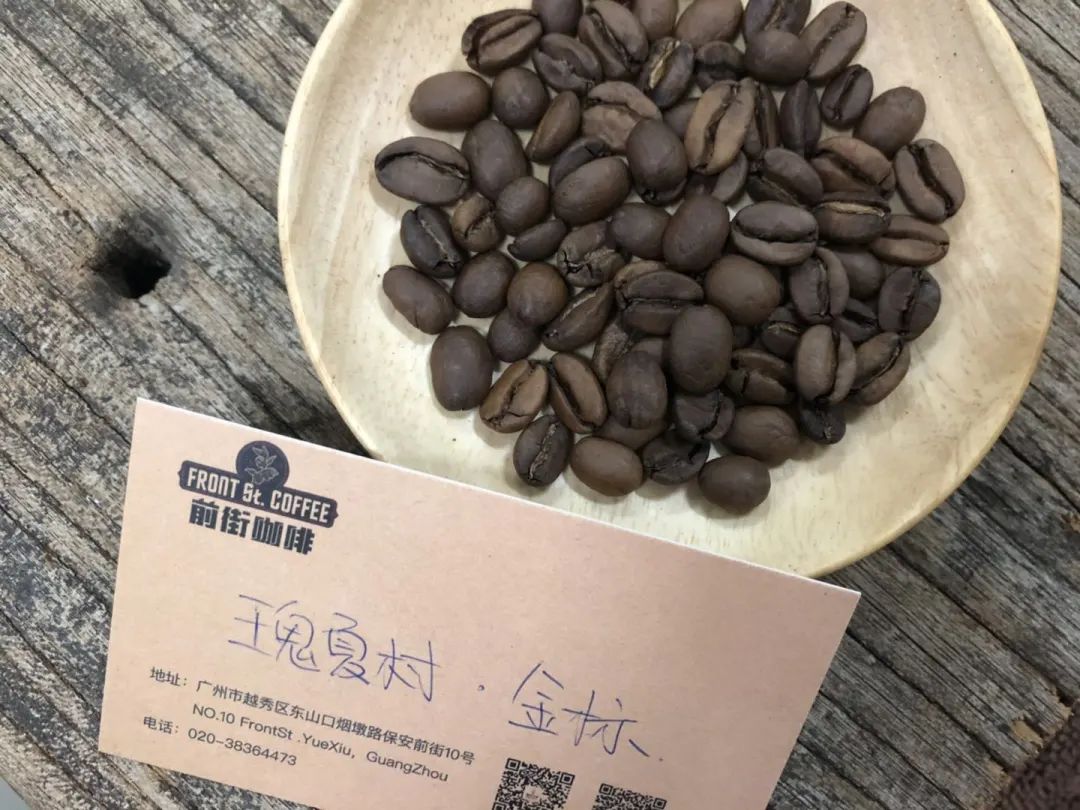
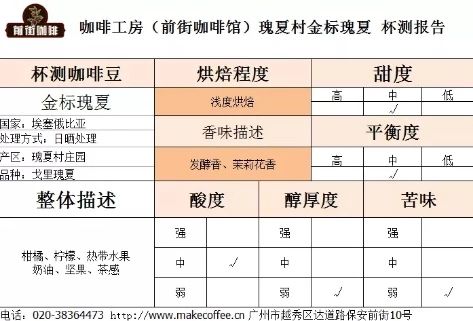
Gold standard
Jinbiao accounts for only 5% of the annual output of Ruoxia Village, which can be said to be of the same level as the bidding batch. The batches that contestants from all over the world usually choose, such as the WBC World Championship held in the Netherlands in 2018. The Australian and Japanese champions choose the gold standard batch to compete.
Bakers with high requirements for quality will also purchase, with complete traceability, outstanding flavor and high complexity of each batch, which is the best grade of the manor second only to competitive bidding.
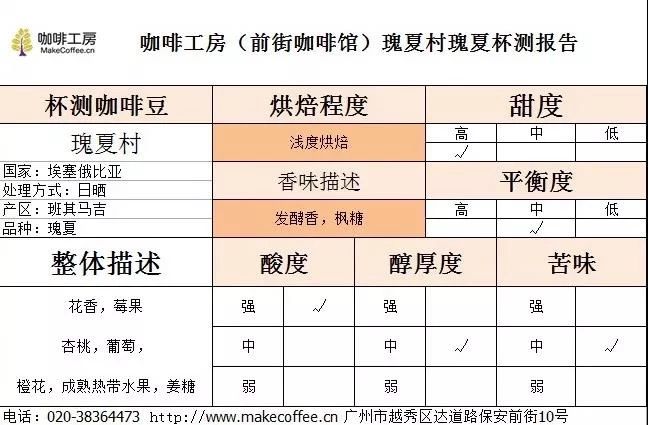
Red mark
The batch with complete traceability has the typical flavor of Rosa Village, the flavor intensity and complexity are slightly weaker than the gold standard batch, and it is a single batch with high performance-to-price ratio.
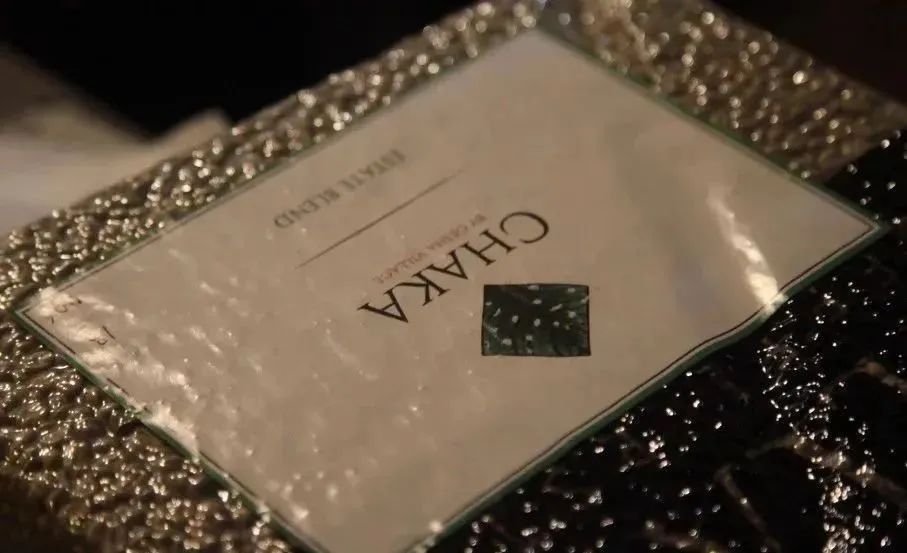
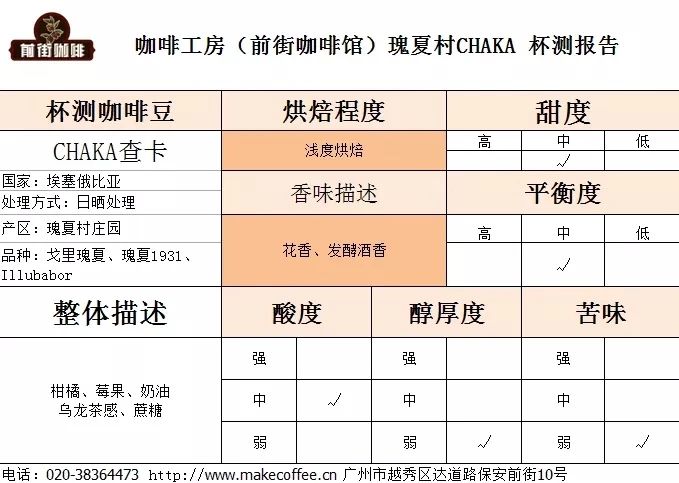
Check card
This is a blend of Rosa Coffee produced by Ruoxia Village, which includes three varieties, namely, Gori Gesha, Gesha 1931 (Gesha 1931) and Illubabor (Essel original disease-resistant variety).
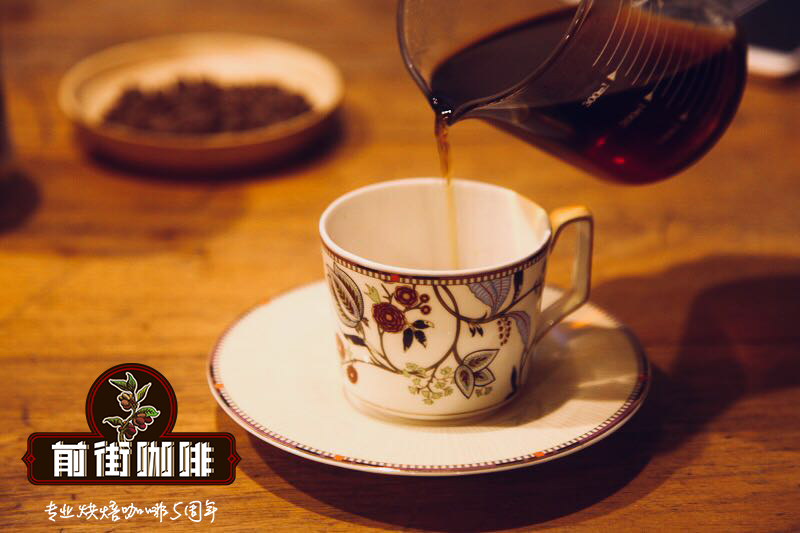
* hand punch
The editor tries to make a pot by hand ~ use the V60 filter cup, the water temperature is 90 ℃, the grindness is BG-5R (60% of the pass rate of Chinese standard No. 20 sieve), the ratio of powder to water is 1:15, phased extraction. The respective flavors are as follows:
[Golden Standard] it smells of fermented wine, with soft acidity of citrus and strawberries on the palate, nutty, creamy sweetness and sugar in the middle, strawberry jam and lemon aromas when the temperature drops.
[red mark] there are coconut, licorice, cream, chocolate, toffee, citrus, almonds, strawberries, which smell fermented. The overall flavor is more balanced, the taste is mellow, and the nut flavor is more prominent.
[Chaka] it smells with a hint of fermentation, with sour notes of citrus and grapefruit, with creamy, chocolate and caramel flavors.
Important Notice :
前街咖啡 FrontStreet Coffee has moved to new addredd:
FrontStreet Coffee Address: 315,Donghua East Road,GuangZhou
Tel:020 38364473
- Prev

How long can the roasted coffee beans last? what is the best shelf life?
How long can the roasted coffee beans last? what is the best shelf life? fresh period: starting from the end of the latest fresh period of about 2 weeks, the coffee beans in the bag gradually go down from their peak. However, if it is properly preserved, the quality and flavor of coffee beans will decline slowly in the first period of time, and the freshness of coffee beans is still at a high level. We call it a relatively fresh period, which lasts about one month.
- Next

Sulawesi Coffee Bean treatment method introduction to Red Wine Solar Water Honey treatment
Sulawesi Coffee Bean treatment method Red Wine Sun Water Honey treatment introduction Sulawesi land mass extrusion, so the average height of the island is about 500 meters above sea level. Sulawesi is located in the east of Indonesia, divided into North Sulawesi and South Sulawesi.
Related
- What brand of black coffee is the most authentic and delicious? what are the characteristics of the flavor of the authentic Rose Summer Black Coffee?
- Introduction to the principle and characteristics of the correct use of mocha pot A detailed course of mocha pot brewing coffee is described in five steps.
- Which is better, decaf or regular coffee? how is decaf made?
- How much is a bag of four cat coffee?
- How about four Cat Coffee or Nestle Coffee? why is it a cheap scam?
- Which is better, Yunnan four Cats Coffee or Nestle Coffee? How about cat coffee? is it a fake scam? why is it so cheap?
- How about Cat Coffee? what grade is a hoax? which instant coffee tastes better, four Cat Coffee, Nestle Coffee or G7 coffee?
- Process flow chart of coffee making-Starbucks coffee making process what coffee tastes good at Starbucks
- The top ten best coffee beans in the world Rose summer coffee or Tanzanian coffee tastes good
- Yunnan four cat coffee is good to drink?_four cat coffee is a big brand? four cat blue mountain coffee is fake?

